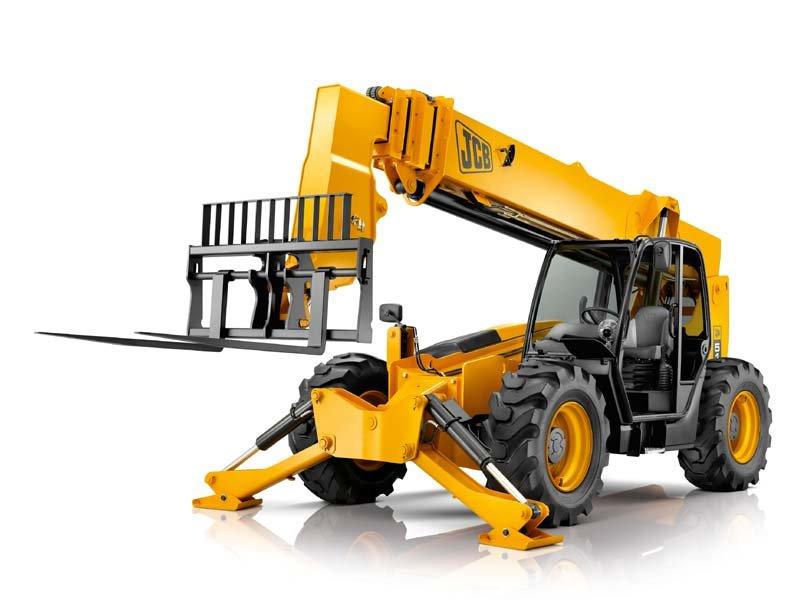Construction Equipment Rentals: Strong Equipment for Your Jobs
Optimize Your Budget by Understanding the Prices Connected With Construction Tools Leasings
Understanding the complete range of costs connected with building tools leasings is essential for optimizing your budget plan. While the initial rental charge may appear straightforward, countless extra expenditures-- such as transport, gas additional charges, and maintenance-- can swiftly accumulate, influencing your financial preparation. Being conscious of various fees and the details of rental contracts can aid avoid unforeseen economic concerns. What methods can be employed to efficiently take care of these costs and guarantee an extra efficient rental experience?
Introduction of Rental Costs
When taking into consideration construction tools leasings, recognizing the connected prices is critical for reliable budgeting and job preparation. Rental costs can differ considerably based on a number of factors, consisting of equipment type, period of rental, and place. The first rental fee usually reflects the devices's market need and its associated functional capacities, influencing the general expenditure.
Along with the base rental rate, secondary costs might occur, such as transport fees, fuel additional charges, and upkeep charges. It is important to account for these extra expenditures to properly assess the overall expense of renting out equipment. Additionally, the rental duration can influence rates; longer rentals may get reduced prices, while temporary rentals might incur higher everyday fees.

Breakdown of Rental Rates
A comprehensive understanding of rental prices is crucial for service providers and task supervisors aiming to optimize their budgets. Rental prices for building and construction devices usually include several parts, consisting of base rates, time-based charges, and use charges.
Base rates are the core costs related to the leasing of the equipment, often established by the kind and size of the equipment. These prices can vary significantly, affected by elements such as equipment need, accessibility, and local market patterns. Time-based charges, which might be daily, weekly, or monthly, serve to suit various project timelines and rental periods.
Furthermore, rental rates might include use charges, which apply when tools is used past a defined limit, making sure that the rental company can make up wear and tear. Seasonal need fluctuations can additionally affect rental prices, with peak building periods generally regulating higher rates.
Furthermore, recognizing the rental company's plans regarding upkeep and insurance policy can offer more insight right into the overall expense framework. By evaluating these parts, professionals can make enlightened decisions, making sure the option of rental equipment lines up with both task requirements and budget plan restraints.
Extra Fees to Take Into Consideration
Understanding the details of extra charges is vital for professionals to manage their overall rental expenses effectively. Beyond the basic rental rates, various supplemental fees can substantially affect the overall cost of equipment rental. These fees often include delivery and pick-up costs, which can differ based on distance and logistics involved in transporting the equipment to and from the work website.
Additionally, some rental business leeboy paver for sale may impose gas additional charges if the devices is returned with less gas than when rented out. It is likewise vital to understand potential cleansing charges, especially for specialized tools that calls for complete maintenance after usage.

Completely reviewing the rental agreement and making clear these additional fees upfront can aid service providers stay clear of unexpected expenses and ensure that budget plans stay undamaged throughout the project lifecycle.
Repair And Maintenance Expenses
Routine upkeep and repair work expenses are usually neglected variables that can substantially affect the overall price of building tools rentals. When leasing tools, it is essential to take into consideration not only the rental charges yet also the prospective prices connected with keeping the equipment in optimum operating condition.
Numerous rental business consist of basic maintenance as part of the rental arrangement; nonetheless, more unforeseen failures or extensive repair work can cause extra expenditures. It's necessary to evaluate the rental contract thoroughly to comprehend what upkeep solutions are covered and what duties drop on the occupant.
In addition, tools that is not well-maintained can lead to inefficiencies at work site, potentially enhancing and heavy duty equipment rental triggering delays project costs. To mitigate these risks, it is advisable to conduct normal examinations and keep open interaction with the rental copyright pertaining to any kind of problems that develop during use.
Insurance Policy and Responsibility Prices
Insurance coverage and obligation costs are essential components that can significantly impact the total expenditure of building equipment rentals (heavy equipment rental). These prices make sure that both the rental company and the customer are secured from potential economic losses developing from accidents, damages, or theft throughout the rental period

In addition, clients must be mindful of any type of deductibles or exemptions in the insurance coverage, as these can influence potential out-of-pocket costs. Recognizing the conditions of any type of insurance policy coverage is important to stay clear of unexpected expenses. Eventually, budgeting for insurance policy and liability costs can aid ensure a smoother rental experience and safeguard versus economic threats related to building jobs.
Verdict
In conclusion, a comprehensive understanding of the costs linked with building and construction devices rentals is essential for effective spending plan administration. Eventually, informed decision-making pertaining to devices rentals adds to the general success of construction undertakings.
Rental expenses can vary significantly based on numerous elements, consisting of devices type, period of leasing, and location (equipment rental company). The rental duration can impact rates; longer leasings might qualify for affordable rates, while temporary rentals could incur greater daily costs
By conducting thorough research study and involving with credible rental companies, specialists can efficiently browse the complexities of rental prices, inevitably maximizing their monetary sources.
Beyond the typical rental rates, different supplementary fees can dramatically impact the overall price of equipment leasing. Rental firms frequently supply responsibility insurance that covers injuries to third events or damages to home, while tools damages insurance can cover the cost of repair services or substitute if the rented out equipment is damaged.